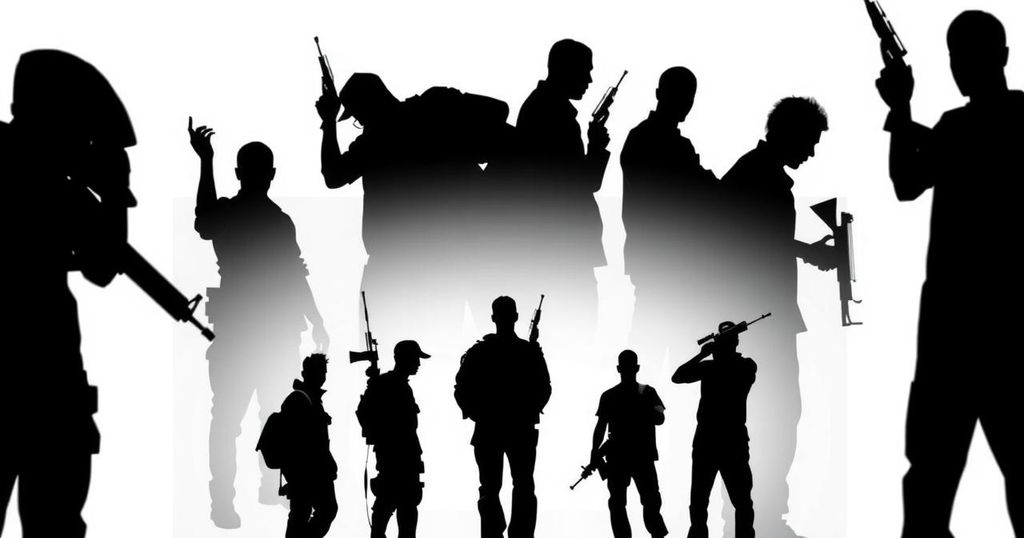Dominican President Advocates for Action Amidst Haiti’s Gang Violence Crisis

During a speech at the U.N. General Assembly, Dominican President Luis Abinader warned of potential “drastic measures” if the U.N.-backed mission in Haiti fails to curtail rampant gang violence. He noted that gangs control 80% of Port-au-Prince, causing significant instability and prompting many Haitians to flee to the Dominican Republic. Abinader called for the mission to be fully established ahead of delayed elections, highlighting the widening humanitarian crisis and the Dominican Republic’s burden in addressing the implications for regional security.
In a recent address at the United Nations General Assembly in New York, President Luis Abinader of the Dominican Republic issued a warning concerning the potential need for “drastic measures” to safeguard his nation if the United Nations-backed mission aimed at mitigating gang violence in Haiti proves unsuccessful. He did not specify the nature of these possible measures but emphasized the urgent necessity of the mission’s success given the precarious situation in neighboring Haiti. Haiti faces a significant security crisis, with gangs wielding control over roughly 80% of Port-au-Prince, exacerbated by the assassination of President Jovenel Moïse in July 2021. This instability has resulted in approximately 700,000 Haitians becoming homeless, prompting many to seek refuge in the Dominican Republic, which occupies the eastern part of the island of Hispaniola. Abinader expressed gratitude to Kenya, which is leading the multinational effort in Haiti, contributing nearly 400 police officers, alongside support from Jamaica and Belize. However, he noted that this contingent is far below the 2,500 personnel initially pledged by various nations, highlighting concerns regarding resource allocation for the mission as the U.S. government contemplates further involvement through a potential U.N. peacekeeping force. The president articulated that the establishment of secure conditions is imperative for enabling free and fair elections, which have not occurred in Haiti since 2016, despite a transitional presidential council being tasked to conduct elections by February 2026. He warned, “We cannot allow the effort made to date to fail. If that were to happen, Haiti’s collapse would be imminent.” The security situation in Haiti has deteriorated to the extent that gangs have executed coordinated assaults on vital government facilities, including police stations and prisons, leading to the resignation of former Prime Minister Ariel Henry. This violence has placed substantial strain on Dominican resources, as Abinader noted, “More than three years of instability in our neighboring country has put significant pressure on our own security.” Highlighting the toll of the Haitian crisis, Abinader indicated that a notable portion of medical services and education within the Dominican Republic is utilized by Haitians, underscoring the shared burden between the two nations. The Dominican Republic has undertaken substantial measures to control immigration, deporting over 170,000 individuals identified as Haitians last year, although human rights organizations have raised concerns regarding the treatment of Haitians and those of Haitian descent in the Dominican Republic. In defense of his administration’s actions, Abinader rejected accusations of human rights violations, asserting, “The Dominican government is profoundly committed to protecting human rights.” In summary, President Abinader’s remarks underscored the urgency of international intervention in Haiti to restore stability and prevent further crises that could adversely impact the Dominican Republic. He pointed out the progress achieved in combating crime domestically and the challenges posed by ongoing regional instability.
The article discusses the precarious security situation in Haiti, where gang violence has surged, leading to widespread social and economic instability. Following the assassination of President Jovenel Moïse, gang control has significantly increased, posing challenges not only for Haiti but also for the Dominican Republic, which shares the island of Hispaniola with it. The Dominican government’s concerns surrounding the implications of Haitian instability reflect the intricate relationship between the two countries, as Haiti’s crisis translates into broader humanitarian and security issues for the Dominican Republic, which has responded by enhancing border security and immigration policies.
In conclusion, President Luis Abinader’s address to the U.N. highlights the critical situation in Haiti and the Dominican Republic’s commitment to international cooperation in addressing insecurity. He articulated the need for effective action against gang violence and emphasized the Dominican Republic’s role in managing the fallout from Haitian instability. The ongoing challenges signal a significant call for responsible international involvement and highlight the complexities of regional security dynamics.
Original Source: apnews.com






